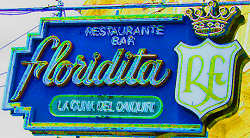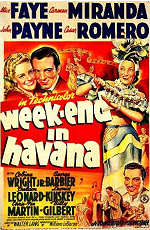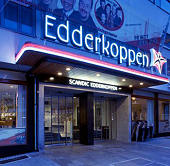 The criminal complaint filed against the two Florida men who obtained Cuba travel licenses for fake churches is amusing reading, at least if you enjoy reading about gangs that couldn’t shoot straight. Some 4,500 people traveled on the fake churches’ licenses and it’s easy to see how the authorities caught wind of the scheme:
The criminal complaint filed against the two Florida men who obtained Cuba travel licenses for fake churches is amusing reading, at least if you enjoy reading about gangs that couldn’t shoot straight. Some 4,500 people traveled on the fake churches’ licenses and it’s easy to see how the authorities caught wind of the scheme:
During interviews by Customs and Border Protection (“CBP”), travelers returning to the U.S. after traveling on these licenses admitted . . . that they were not traveling for religious purposes.
That is ICE-Special-Agent-Speak for what probably really happened:
CBP Agent: Welcome to the U.S., sir.
Tourist (dressed in tropical shirt and Oakley sunglasses): It’s great to be back.
CBP Agent: I see you were in Cuba doing missionary work.
Tourist: Me? No, dude, I was there drinking mojitos and smokin’ Cohibas. I was too wasted to do any missionary work.
The complaint also states that the defendants made up the names of churches and pastors and opened up mailboxes for the fictional churches at various UPS stores. Made-up church names included the First Church of Christ, the Assumption Church of Christ, Woodland Church of Christ, Outreach Hispanic Ministries. and the Church of Life of Ocoee.
According to the complaint, the defendants then filed OFAC license applications for these churches using the maildrops as addresses and providing fictional congregation sizes for the churches. One of the other things that tipped off authorities to the scheme — aside from the distinctly nonreligious demeanor of the tourists — was that the numbers of people traveling on these licenses exceeded the number of congregants for the churches.
The two defendants were stopped in Miami on a return trip from Cuba and they produced the Assumption Church of Christ license. When questioned separately, one of the defendants allegedly admitted immediately that the Assumption Church of Christ didn’t exist. “You have me dead to rights,” he is alleged to have said.
That would be, fairly, an understatement.

 Posted by
Posted by  Category:
Category: 

 According to
According to  Earlier this month, the Scandic Edderkoppen Hotel in Oslo, Norway,
Earlier this month, the Scandic Edderkoppen Hotel in Oslo, Norway,  On Wednesday the GAO issued a
On Wednesday the GAO issued a 

